Top 250 Movies Like In The Land Of Don Quixote
A list of the best movies similar to In the Land of Don Quixote. If you liked In the Land of Don Quixote then you may also like: Vienna, We Work Again, The Wild, Wild World of Jayne Mansfield, Natalie Wood: What Remains Behind, The Night That Panicked America and many more great movies featured on this list.
Italian-language documentary travelogue series about Spain, made by Orson Welles.
We Work Again
The role of African Americans in the recovery years of the Great Depression is the subject of this informational short, which offers an idealized depiction of life in a segregated society. The highlight, by far, is rare footage of Orson Welles’s “Voodoo Macbeth,” produced in 1935 for the New York Negro Unit of the WPA’s Federal Theatre Project.
The Wild, Wild World of Jayne Mansfield
Jayne takes us on a review of her last world tour. She takes us through Rome, shares a fantasy about Roman athletes, and then is off to Cannes. She takes a trip to the nudist colony on the Isle of Levant, where she almost kind of joins in. Then it's off to Paris, where she gets a beauty treatment from Fernand Aubrey, and attends some racy dance revues. In New York and Los Angeles, she visits some topless clubs and listens to a topless all-girl pop band. The film wraps up with some posthumous footage of her family in mourning.
Natalie Wood: What Remains Behind
Explore the personal and professional triumphs and challenges of actor Natalie Wood, which have often been overshadowed by her premature death.
The Night That Panicked America
A dramatization of the Oct. 30, 1938 mass panic that Orson Welles' radio play, "The War of the Worlds" accidentally provoked.
Othello
When a secret marriage is planned between Othello, a Moorish general, and Desdemona, the daughter of Senator Brabantio, her old suitor Roderigo takes it hard. He allies himself with Iago, who has his own grudge against Othello, and the two conspire to bring Othello down. When their first plan, to have him accused of witchcraft, fails, they plant evidence intended to make him believe Desdemona is unfaithful.
Jodorowsky's Dune
Shot in France, England, Switzerland and the United States, this documentary covers director Alejandro Jodorowsky (El Topo, Holy Mountain, Santa Sangre) and his 1974 Quixotic attempt to adapt the seminal sci-fi novel Dune into a feature film. After spending 2 years and millions of dollars, the massive undertaking eventually fell apart, but the artists Jodorowsky assembled for the legendary project continued to work together. This group of artists, or his “warriors” as Jodorowsky named them, went on to define modern sci-fi cinema with such films as Alien, Blade Runner, Star Wars and Total Recall.
A King's Story
A King's Story is a 1965 British documentary film directed by Harry Booth about the life of King Edward VIII, from his birth until abdication in 1936. It was nominated for an Academy Award for Best Documentary Feature.
And Then There Were None
Ten people are invited to a hotel for a weekend getaway by a Mr. U. N. Owen, who mysteriously isn't in attendance. When the group gets together for their first dinner, a record is played in which Mr. Owen accuses each guest of committing various unpunished crimes, which sets off a series of murders in the hotel.
Around the World with Douglas Fairbanks
With the advent of sound, the world's leading screen idol, Douglas Fairbanks, experienced a downturn in his fortunes. His thin, reedy voice was not suited to the talkies, his marriage to Mary Pickford was on the outs, and his son, Douglas Fairbanks, Jr., had replaced him as a major box-office draw. Faced with the Hollywood equivalent of a mid-life crisis, Doug called up three of his best friends - director Victor Fleming, cinematographer Henry Sharp, and production manager Charles Lewis - and took them on a six-month tour of Asia, ostensibly to shoot a travelogue for United Artists (of which Fairbanks was still a major shareholder.) Their first stop is Honolulu, followed in quick succession by Japan, China, Peking, Hong Kong, Indochina, the Philippines, Siam, and India. Fairbanks and company spend time at such noteworthy spots as the Taj Mahal, Angkor Wat, the Summer Palace and the Sun Yat-Sen Mausoleum.
The Battle Over Citizen Kane
Documentary about the battle between Orson Welles and William Randolph Hearst over Welles' Citizen Kane (1941). Features interviews with Welles' and Hearst's co-workers also acts as a relatively complete biograph of Hearst's career.
The Challenge... A Tribute to Modern Art
The Challenge... A Tribute to Modern Art is a 1974 American documentary film directed by Herbert Kline. The film shows footage of great modern artists in their studios creating and commenting on their work, with narration and commentary by Orson Welles. It was nominated for an Academy Award for Best Documentary Feature.
The Deep
A couple's honeymoon trip aboard a yacht leads to a claustrophobic drama when another vessel runs into their voyage, apparently drifting. Shot in a piecemeal fashion between 1966 and 1969 and plagued with production problems, this film never completed principal photography and never entered post-production. The original negatives are now considered to be lost, and the film only exists in two incomplete workprint versions (one color and one black-and-white), which have received isolated public screenings since 2007.
Moby Dick
In 1841, young Ishmael signs up for service abroad the Pequod, a whaler sailing out of New Bedford. The ship is under the command of Captain Ahab, a strict disciplinarian who exhorts his men to find Moby Dick, the great white whale. Ahab lost his his leg to that creature and is desperate for revenge. As the crew soon learns, he will stop at nothing to gain satisfaction.
The Endless Summer
Bruce Brown's The Endless Summer is one of the first and most influential surf movies of all time. The film documents American surfers Mike Hynson and Robert August as they travel the world during California’s winter (which, back in 1965 was off-season for surfing) in search of the perfect wave and ultimately, an endless summer.
The Fairylogue and Radio-Plays
L. Frank Baum would appear in a white suit and present his live actors, slide shows and films as a live travelogue presentation of his popular fantasies. Highlights include Dorothy being swept to Oz in various ways, such as with back-projection tornadoes and storms in a chicken coop. Lack of financial backing forced the show to fold after appearing in only two cities, despite being a critical and commercial success.
The Finest Hours
A biography of Winston Churchill, shown through re-creations and actual film footage and told by Orson Welles.
Follow the Boys
During World War II, all the studios put out "all-star" vehicles which featured virtually every star on the lot--often playing themselves--in musical numbers and comedy skits, and were meant as morale-boosters to both the troops overseas and the civilians at home. This was Universal Pictures' effort. It features everyone from Donald O'Connor to the Andrews Sisters to Orson Welles to W.C. Fields to George Raft to Marlene Dietrich, and dozens of other Universal players.
History of the World: Part I
An uproarious version of history that proves nothing is sacred – not even the Roman Empire, the French Revolution and the Spanish Inquisition.
The Return of Cagliostro
In the Sicily of the late 1940s, two brother sculptors, tired of selling madonnas to the local churches, finally realize their dream, and set up a Sicilian production company, thanks to the help of a local bishop. They start producing one box-office failure Z-movie after the other, all with terribly bad local non-pros as actors. Covered in debts, they finally have their great chance, when a local nobleman obsessed by magic decides to invest all his wealth in the making of a movie about Cagliostro, just one year after Orson Welles' Black Magic (1949). They hire a famous American actor (Robert Englund) and start shooting "The Return of Cagliostro".
Me and Orson Welles
New York, 1937. A teenager hired to star in Orson Welles' production of Julius Caesar becomes attracted to a career-driven production assistant.
Skateboard
A Hollywood agent finds himself in debt to a powerful bookie. To make a fast buck, he creates a team of exceptionally talented skateboarders and enters them in a downhill race. If they win, they will get $20,000
Prodigal Sons
Filmmaker Kimberly Reed returns home for her high school reunion, ready to reintroduce herself to the small town as a transgender woman and hoping for reconciliation with her long-estranged adopted brother Marc. Things are complicated by the shocking revelation that Marc may be the grandson of Orson Welles and Rita Hayworth, forcing Kim and her family to explore questions of sexual orientation, identity, severe trauma and love.
The Hearts of Age
A colonial scene in the U.S. An old lady sits astride a bell while a man in blackface, wig, and livery pulls the bell rope. From an upper door emerges an old man, dressed as a dandy, who tips his hat to the woman as he walks down stairs grinning. Others leave the same door and walk down the same stairs: a shabby man, a cop, and, several times, the same dandy. The man in blackface hangs himself; the dandy continues to smile. A bell tolls, a grave beckons. In the dark, the dandy plays the piano. Is he Death? The Hearts of Age is the first film made by Orson Welles. The film is an eight-minute short, which he co-directed with William Vance in 1934. The film stars Welles' first wife, Virginia Nicholson, as well as Welles himself. He made the film while attending the Todd School for Boys, in Woodstock, Illinois, at the age of 19.
Helicopter Canada
A view from a helicopter of the ten Canadian provinces in 1966. The result is a big, beautiful and engrossing bird's-eye portrait of the country. Nothing here is quite the same as seen before, even Niagara Falls. Canadians will be thrilled by this panoramic view of familiar territory. Made for international distribution for the Canadian centennial.
Is It Always Right to Be Right?
The world is divided into factions, on opposite sides of issues; each side is, of course, right. And so the gap between the people grows, until someone challenges the absolutist view of what's "right."
It's All True
A documentary about Orson Welles's unfinished three-part film about South America.
Lost in La Mancha
Fulton and Pepe's 2000 documentary captures Terry Gilliam's attempt to get The Man Who Killed Don Quixote off the ground. Back injuries, freakish storms, and more zoom in to sabotage the project.
Magician: The Astonishing Life and Work of Orson Welles
The extraordinary life of Orson Welles (1915-85), an enigma of Hollywood, an irreducible independent creator: a musical prodigy, an excellent painter, a master of theater and radio, a modern Shakespeare, a magician who was always searching for a new trick to surprise his audience, a romantic and legendary figure who lived only for cinema.
The Merchant of Venice
A short film directed by Orson Welles based on William Shakespeare's play of the same name. While actually completed, it is frequently cited as an unfinished film, though better described as a partially lost film due to the loss of film negatives. A restored and reconstructed version of the film, made by using the original script and composer's notes, premiered at the 72nd Venice International Film Festival alongside Othello as part of the pre-opening ceremonies.
Mondo Cane
A documentary consisting of a series of travelogue vignettes providing glimpses into cultural practices throughout the world intended to shock or surprise, including an insect banquet and a memorable look at a practicing South Pacific cargo cult.
Point and Shoot
At first glance, Matthew VanDyke—a shy Baltimore native with a sheltered upbringing and a tormenting OCD diagnosis—is the last person you’d imagine on the front lines of the 2011 Libyan revolution. But after finishing grad school and escaping the U.S. for "a crash course in manhood," a winding path leads him just there. Motorcycling across North Africa and the Middle East and spending time as an embedded journalist in Iraq, Matthew lands in Libya, forming an unexpected kinship with a group of young men who transform his life. Matthew joins his friends in the rebel army against Gaddafi, taking up arms (and a camera). Along the way, he is captured and held in solitary confinement for six terrifying months.
A Huey P. Newton Story
The story of how the radical Huey P. Newton developed the Black Panther Party based on his 10-point program for social reform.
Street Gang: How We Got to Sesame Street
Take a stroll down Sesame Street and witness the birth of the most influential children's show in television history. From the iconic furry characters to the classic songs you know by heart, learn how a gang of visionary creators changed the world.
Swimming to Cambodia
Spalding Gray sits behind a desk throughout the entire film and recounts his exploits and chance encounters while playing a minor role in the film 'The Killing Fields'. At the same time, he gives a background to the events occurring in Cambodia at the time the film was set.
Too Much Johnson
This film was not intended to stand by itself, but was designed as the cinematic aspect of Welles' Mercury Theatre stage presentation of William Gillette's 1894 comedy about a New York playboy who flees from the violent husband of his mistress and borrows the identity of a plantation owner in Cuba who is expecting the arrival of a mail order bride. The film component of the performance was ultimately never screened due to the absence of projection facilities at the venue. Long-believed to be lost, a workprint was discovered in 2008 and the film had its premiere in 2013.
Treasure Island
Young Jim Hawkins finds himself serving with pirate captain Long John Silver in search of a buccaneer's treasure, in this short adaptation of Robert Louis Stevenson's classic tale.
The Matador
Growing up in Granada, Spain, young David Fandila always dreamed of being a matador. This documentary captures the rise of "El Fandi," one of Spain's most renowned bullfighters, who first entered the ring at age 14. While it's never in doubt that Fandila is at the top of his game, filmmakers Stephen Higgins and Nina Gilden Seavey weigh the significance of bullfighting as a cultural tradition against its inherent danger and cruelty.
Below the Belt
A close-up look at the turbulent world of women's professional wrestling as a New York City waitress decides to become a professional wrestler.
The Endless Summer 2
Bruce Brown, king of surfing documentaries, returns after nearly thirty years to trace the steps of two young surfers to top surfing spots around the world. Along the way we see many of the people and locales Bruce visited during the filming of Endless Summer (1966).
Don Quixote
Don Quixote, accompanied by Sancho Panza, wander the roads of Spain protecting the weak and doing good deeds in the name of his beloved Dulcinea.
The Late Great Planet Earth
The Late, Great Planet Earth is the title of a best-selling 1970 book co-authored by Hal Lindsey and Carole C. Carlson, and first published by Zondervan. The book was adapted in 1979 into a movie. The Late, Great Planet Earth is a treatment of literalist, premillennial, dispensational eschatology. As such, it compared end-time prophecies in the Bible with then-current events in an attempt to broadly predict future scenarios leading to the rapture of believers before the tribulation and Second Coming of Christ to establish his thousand-year (i.e. millennial) Kingdom on Earth.
Boris Karloff: The Man Behind the Monster
Beginning just before his debut as Frankenstein’s creation, this documentary compellingly explores the life and legacy of a cinema legend, presenting a perceptive history of the genre he personified. Karloff's films were long derided as hokum and attacked by censors, but his phenomenal popularity and pervasive influence endures, inspiring some of our greatest actors and directors into the 21st Century – among them Guillermo Del Toro, Ron Perlman, Roger Corman, and John Landis, all of whom and many more contribute their personal insights and anecdotes.
Mondo Freudo
A “hidden camera” takes the viewer on a worldwide tour of sexual practices and rituals, including Tijuana strippers, Asian sex shows, British prostitutes, New York devil worshipers and a Mexican slave market.
The Silence of Others
The story of the tortuous struggle against the silence of the victims of the dictatorship imposed by General Franco after the victory of the rebel side in the Spanish Civil War (1936-1975). In a democratic country, but still ideologically divided, the survivors seek justice as they organize the so-called “Argentinian lawsuit” and denounce the legally sanctioned pact of oblivion that intends to hide the crimes they were subjects of.
Kike Like Me
Documentary in which filmmaker Jamie Kastner goes on a personal journey to find out what it means to be Jewish in the modern world. Along the way he meets anti-semitic politician Pat Buchanan, Israeli novelist AB Yehoshua, British anti-Israeli curmudgeon Richard Ingrams and Hasids in Brooklyn; he causes a near-riot in a Parisian suburb simply by asking what people think about Jews; and he meets the 'dominatrix' behind Berlin's largest memorial to dead Jews. (Storyville)
The Queen of Hollywood Blvd
On her 60th birthday, the proud owner of a Los Angeles strip club, finds herself in hot water over a twenty-five year old debt to the mob, leading her on a downward spiral of violence and revenge through the underbelly of Los Angeles.
How To Be Very, Very Popular
Two strippers on the run hide out in a college fraternity. Director Nunnally Johnson's 1955 musical comedy stars Betty Grable, Sheree North, Robert Cummings, Charles Coburn, Tommy Noonan, Orson Bean, Fred Clark, Alice Pearce, Rhys Williams, Willard Waterman, Leslie Parrish and Jesslyn Fax.
The Southern Star
Comedy adventure based on a Jules Verne novel about the ups and downs of jewel thieves in the wilds of Africa circa 1900. George Segal is the appealing hero-heel and Ursula Andress is visually stunning as the lady in the proceedings. Orson Welles has a small role.
Postales
In the streets of Cusco, Peru, the lives of an American businessman and his family become irreversibly intertwined with those of a rural Peruvian family struggling day to day to survive. As the construction of a new hotel is finalized, both families are faced with the realities of our shifting world and the unexpected encounters that will change them forever.
The Man Who Saw Tomorrow
Hosted by Orson Welles, this documentary utilizes a grab bag of dramatized scenes, stock footage, TV news clips and interviews to ask: Did 16th century French astrologer and physician Nostradamus actually predict such events as the fall of King Louis XVI, the rise of Napoleon, the assassination of President John F. Kennedy? And are there prophecies that have yet to come true?
Lon Chaney: A Thousand Faces
Lon Chaney, the silent movie star and makeup artist, renowned for his various characterizations and celebrated for his horror films, becomes the subject of this documentary.
Vivien Leigh: Scarlett and Beyond
The life and career of two-time Oscar winner Vivien Leigh, who battled tuberculosis and manic-depression but always remained a star.
Parkinson at 50
Sir Michael Parkinson looks back over his 50 years as a broadcaster, revealing some tricks of the interview trade and remembering some of his favourite encounters.
Franco Building with Jonathan Meades
Writer and broadcaster Jonathan Meades turns his gaze onto Spanish dictator Francisco Franco.
Alfonso Sansone produttore per caso
After the war, almost by chance, Alfonso Sansone starts to produce documentary films and moves from Palermo to Rome, the city of film.
Captured on Film: The True Story of Marion Davies
Blonde, beautiful and talented, Marion Davies was the first and funniest screwball comedienne. As star of two of the best comedies ever made, Show People and The Patsy, she combined zany slapstick and exuberant mimicry. Glamorous, witty and kind, both on screen and off, Davies was also famous for her 35-year-long love affair with William Randolph Hearst.
Top Gear: The Perfect Road Trip
The aim: to select the ideal mode of transport for each leg of a pilgrimage from Venice, Italy to Pau in France – home to a legendary street circuit and the origins of Grand Prix racing. On the way we prepare by taking to the track at Monza – the home of Italian Formula One. We try to get noticed on the road course in Monaco in a Bugatti, a Lamborghini and a Model T Ford. After cruising the canals in Venice we take to the tarmac and things look good - thanks to the Ferrari F12 Berlinetta and Mercedes SLS Black. Throw in a Pagani Huayra, Porsche Cayman S and a GT3 as well as the Aston Martin Vanquish centenary edition, Bentley V8 convertible, Rolls Royce Phantom coupe and the face-bending BAC Mono all seems pretty perfect to us.
Delicato
Globe trot to the most exotic and erotic hot spots in the world in this trippy, mod era voyeuristic voyage! In Denmark, eavesdrop on sexual freedom in action! See a bizarre lesbian queen and her love slave! Spy on a threesome of uninhibited hippies! Travel to the French Riviera where fun in the sun leads to boudoir decadence! Finally, the odyssey of lust brings you to Spain where a young woman witnesses a savage bullfight, inspiring her to take the next step to fulfill her own wild fantasies!
Nos voisins Dhantsu
Québec comedians Réal Béland and Stéphane K. Lefebvre take off for the land of the rising sun, Japan. In Nos voisins Dhantsu, they prove once again that no culture is too different to take on. Their travelogue, mostly limited to Tokyo, is at times well-planned and executed in tightly rehearsed situations, sometimes the scenes use local actors and crew, and then at other times the film erupts in the complete craziness of improvisational comedy. Nos voisins Dhantsu captures Béland's view of an ordered, modest and mysterious society, often by challenging the stereotypical order and discipline that we think of when we think of Japan.
The Five Rules Of Success
An enterprising ex-convict overcomes tragedy by designing his own path to success within a society that failed him.
David Suchet on the Orient Express
In this travelogue, actor David Suchet journeys across Europe aboard the world famous Orient Express train, as he prepares to play Poirot in an adaptation of Agatha Christie's "Murder on the Orient Express".
FC Barcelona Confidential
Documentary following the new board of FC Barcelona as they attempt to turn around the club's business performance.
The Complete 'Citizen Kane'
Documentary looking at Orson Welles and the production of the film CITIZEN KANE fifty years ago, considering the furore that accompanied it and the real life press baron William Randolph Hearst upon whom Kane is based, and his efforts to halt the film, destroy the negative and persecution of people involved with its production and showing. It includes BBC interviews with Welles made in 1960 and 1982, and film historian Robert Carringer looks at the scenes that never made it to the screen. American film critic Pauline Kael also analyses the film's enduring appeal. Extracts from "The RKO Story" (producer: Rosemary Wilton) and "Yesterday's Whitness" (producers: Christopher Cook and Stephen Peet).
Cities of Light: The Rise and Fall of Islamic Spain
Over a thousand years ago, the sun-washed lands of Southern Spain were home to Muslims, Christians, and Jews living together and flourishing. Their culture and beliefs intertwined and the ...
Beyond Citizen Kane
Beyond Citizen Kane (1993) is a British documentary film directed by Simon Hartog, produced by John Ellis, and broadcast on Channel 4. It details the dominant position of the Rede Globo media group in the Brazilian society, discussing the group's influence, power, and political connections.[2] Globo's president and founder Roberto Marinho came in for particular criticism, being compared with fictional newspaper tycoon Charles Foster Kane, created by Orson Welles for the 1941 film Citizen Kane. According to the documentary, Marinho's media group engages in the same Kane wholesale manipulation of news to influence the public opinion.
Ten Days That Shook the World
An epic presentation of the turbulent days leading to the Russian Revolution. Based on the classic work by John Reed, this important documentary makes use of rare footage and little-known information, stirringly narrated by Orson Welles.
Orson Welles: The Paris Interview
A vintage interview captures the artist reflecting on Citizen Kane and expounding on directing, acting and writing and his desire to bestow a valuable legacy upon his profession. The scene is a hotel room in Paris. The year 1960. The star, Orson Welles. This is a pearl of cinematic memorabilia.
How to Stage a Coup
A guide to human history through its most audacious power grabs. From Julius Caesar to Napoleon; from Mussolini to the strongmen of the present day - we see how the world we know has been shaped by those who dream big.
Crucible of Empire: The Spanish-American War
Crucible of Empire demonstrates how and why the Spanish-American War constitutes such an important milestone in U.S. history. This program examines the events and attitudes that led to war, followed by an exploration of the conflict and its outcome. Early film footage and stills of battle scenes, plus rich visuals, a compelling story, and intriguing analogies to current foreign policy make Crucible of Empire a riveting documentary.
Dream Me Up Scotty!
Alex Norton discovers how showbusiness has handled the portrayal of the Scottish accent. For over 100 years audiences have struggled to understand our braw brogue: silent Harry Lauder films attempted an accent in the captions, and in Hollywood's golden era , everyone wanted to paint their tonsils tartan- but as examples from Katharine Hepburn, Orson Welles and Richard Chamberlain show, they couldnae. Then Disney made Brave and proved that it disnae have to be all bad!
The Small World: The Gypsy Children of Granada
In this unsold television pilot for a proposed travelogue series, Richard Erdman visits with the children and townsfolk of the Sacromonte district of Granada, Spain. Directed and photographed by noted master cinematographer and multi-Academy Award winner, James Wong Howe.
Richard Hammond and the Holy Grail
Exploring hundreds of years of history, Richard Hammond embarks on an entertaining travelogue examining the popular and enduring myths and legends surrounding the Holy Grail. Thought by many to be the very cup from which Jesus drank at the Last Supper, the Holy Grail has haunted public imagination for centuries but left many unanswered questions. Does the Grail exist or not and what exactly is it? Richard Hammond and the Holy Grail (BBC ONE) is an intriguing 5,000- mile journey to find out.
A Program About Unusual Buildings & Other Roadside Stuff
A travelogue featuring oddly-shaped buildings (and the folks who live in, work in, own and admire them) located along USA highways.
Breakfast Special
This documentary from PBS travels throughout America in search of the best breakfast places the country has to offer. Along the way, the patrons, employees, and owners of such establishments give their take on what makes for great breakfast fare, and what keeps a customer coming back for more.
Orson Welles Over Europe
When Orson Welles went into self-imposed exile in Europe, he first found stardom with The Third Man and then immersed himself in challenging films, television, theatre and bullfighting. Simon Callow trails the complex actor-director.
Crossroads
The life of a young Jesuit seminarian is turned upside down when he falls in love with a young woman while working as a volunteer at a soup kitchen.
Voodoo Macbeth
In 1936 Harlem, the first all-Black cast to perform Shakespeare's 'Macbeth', directed by a young and arrogant Orson Welles, battles to make it to opening night.
Magic with the Stars
Hollywood celebrities assist magicians in a program of magic and illusion.
Attack of the Jungle Women
This is a film comprised primarily from footage shot by the exploring team of Mr. and Mrs. William Phillips, nee Bill and Eve Phillips, a minor league version of the better-known Martin and Osa Johnson. It, between tons of shots of bare-breasted Choco and Cuna Indian women, has a flimsy plot about a party of engineers "seeking" a continental highway route from South America through Central America to the United States.
Ratstar
When Orson, a sensitive, misunderstood android stows away on Renee Hamilton's cargo ship, they don't fall in love (yet). But when they return to the science base where he lives, something has gone terribly wrong. Mutated, flesh eating rats wreak havoc on Renee and Orson as they try to save lives, and each other, amid terror and mayhem.
They'll Love Me When I'm Dead
As his life comes to its end, famous Hollywood director Orson Welles puts it all on the line at the chance for renewed success with the film The Other Side of the Wind.
Showdown at the Grand
A proud movie theater owner must defend his family business from corporate developers alongside a legendary action star as art imitates life in a showdown for the ages.
The Prado Museum: A Collection of Wonders
Actor Jeremy Irons embarks on an epic journey through the halls of the Prado Museum in Madrid, Spain, two hundred years after its inauguration, along corridors where thousands of masterpieces of all time tell the lives of rulers and common people, and tales about times of war and madness and times of peace and happiness; because, as Goya said, imagination, the mother of the arts, produces impossible monsters, but also unspeakable wonders.
Genocide
The mass murder of Jewish people by the Nazi regime is chronicled, with a warning that anti-Semitism is on the rise and the events of the Holocaust could happen again. The history of European Jewish culture and events before and during the Holocaust are seen in newsreels, photographs, and animated segments. The words of the victims of the era are read, and footage from the liberation os a concentration camp is shown.
Kukan: The Battle Cry of China
Rey Scott received an Honorary Academy Award for this documentary "For his extraordinary achievement in producing Kukan, the film record of China's struggle, including its photography with a 16mm camera under the most difficult and dangerous conditions."
Seeing Red: Stories of American Communists
A unique documentary that looks at the political activities of the American Communist Party in the early to mid-twentieth century.
Forever Activists: Stories from the Veterans of the Abraham Lincoln Brigade
Interviews with seven American veterans of the Spanish Civil War who fought for the Loyalist cause during the war and went on to live lives of activism.
Jim Henson Idea Man
Featuring unprecedented access to Jim Henson's personal archives, filmmaker Ron Howard brings us a fascinating and insightful look at a complex man whose boundless imagination inspired the world.




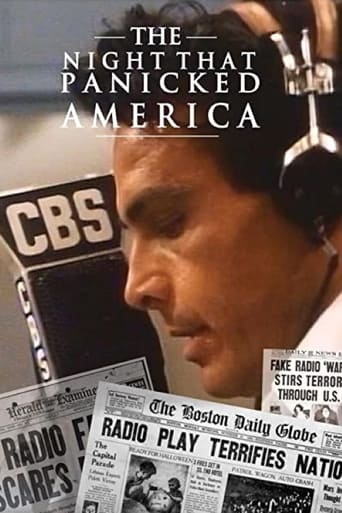
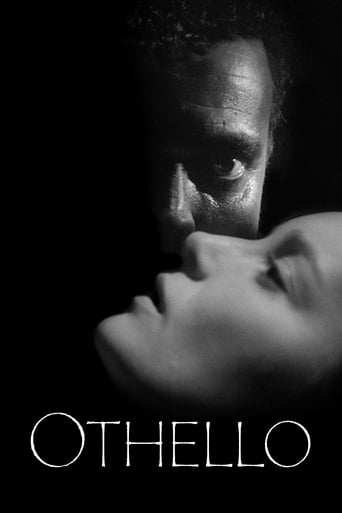
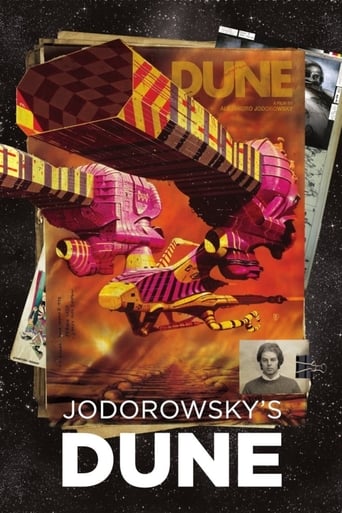

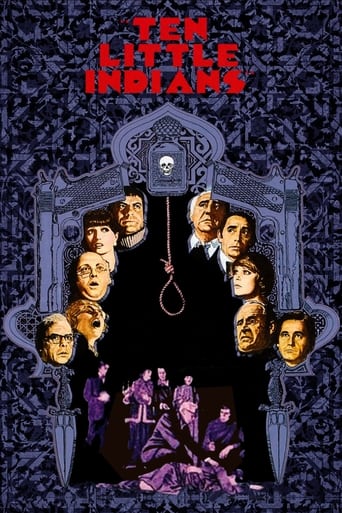
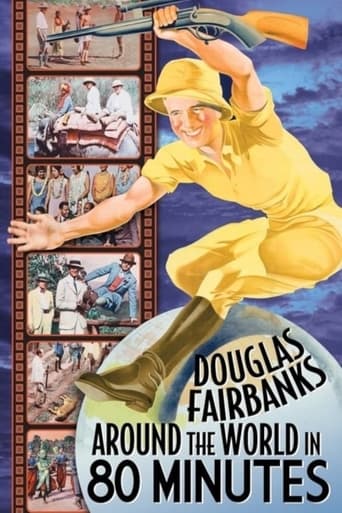








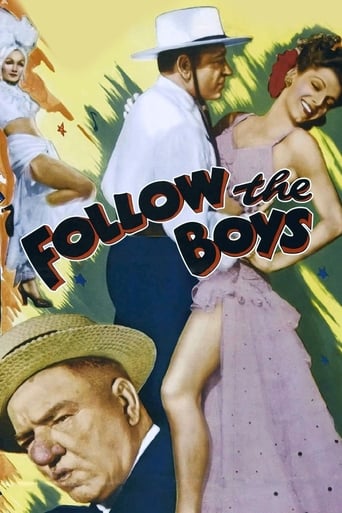
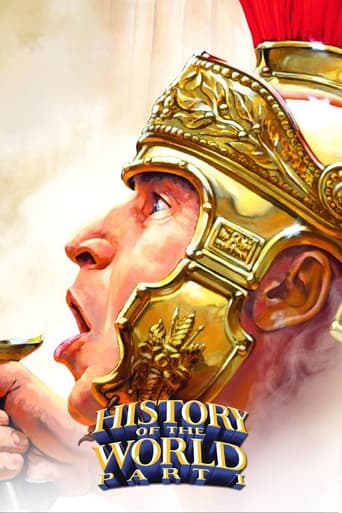

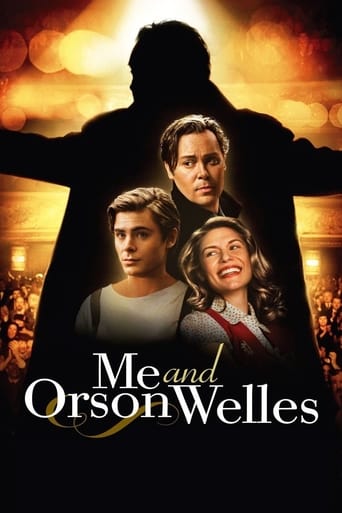





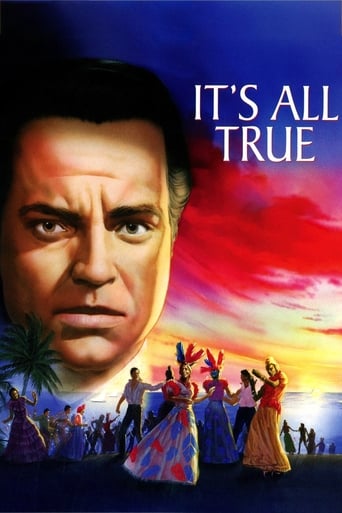

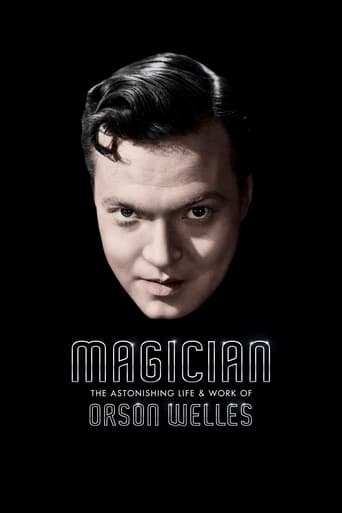




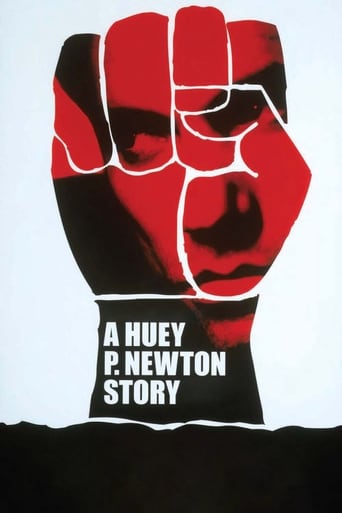
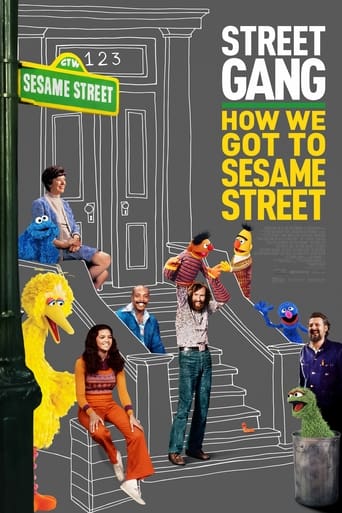







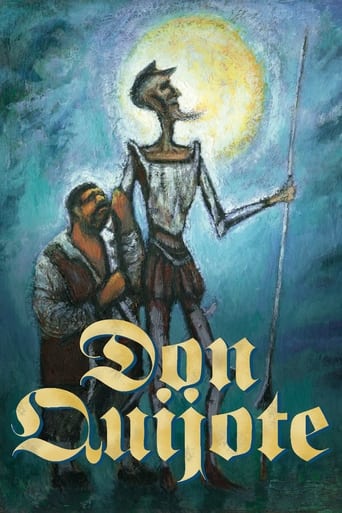








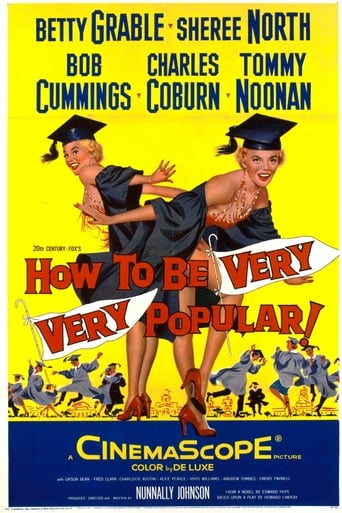






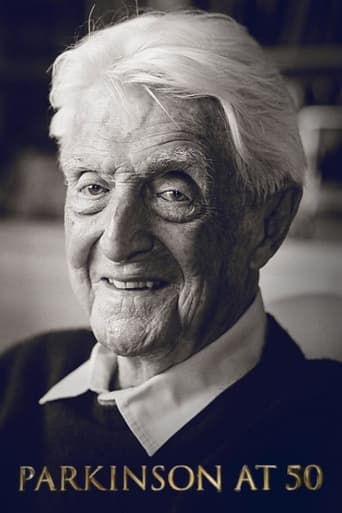
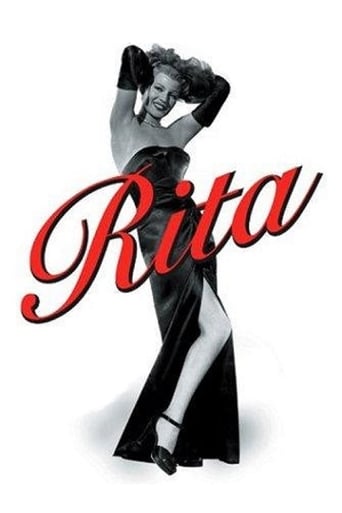





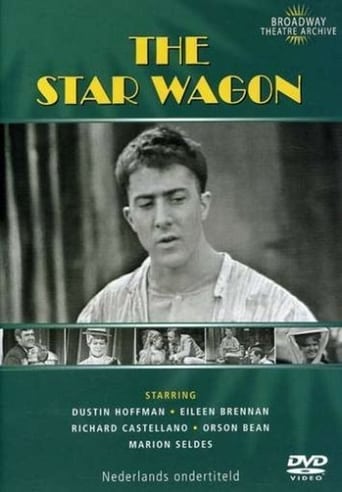

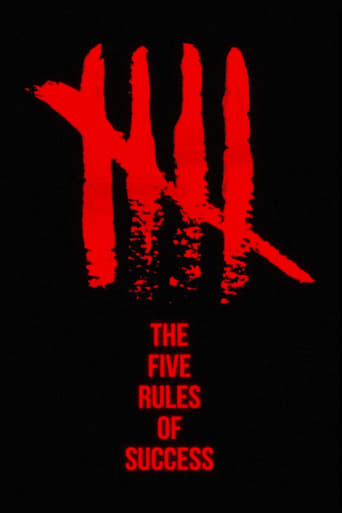













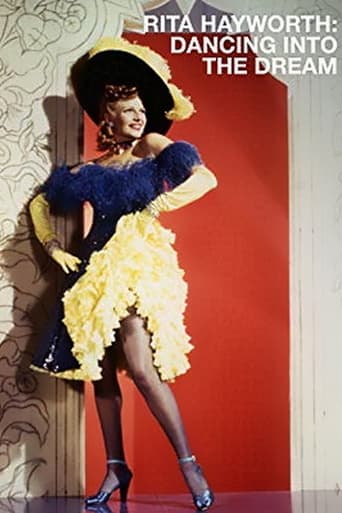


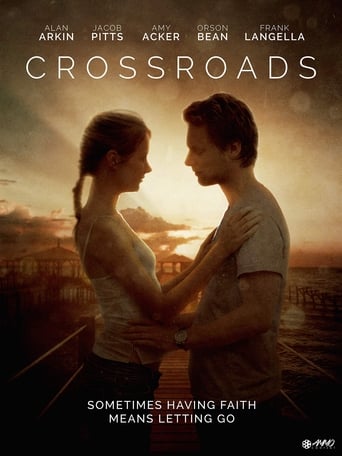
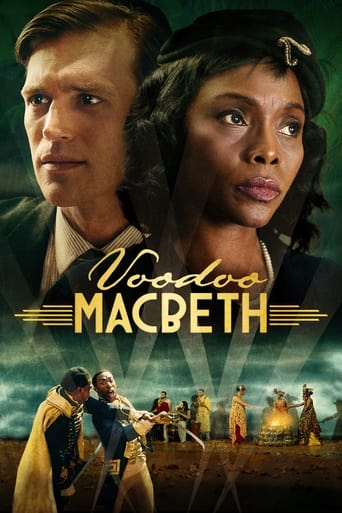

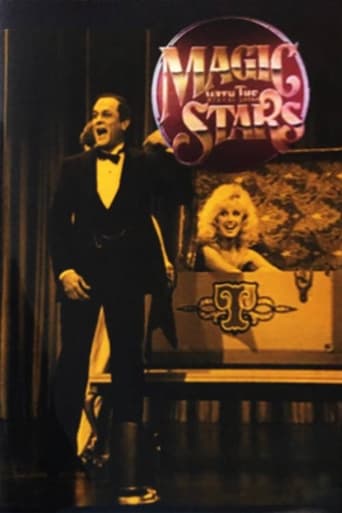


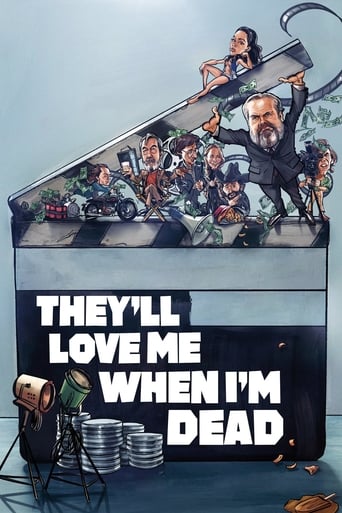


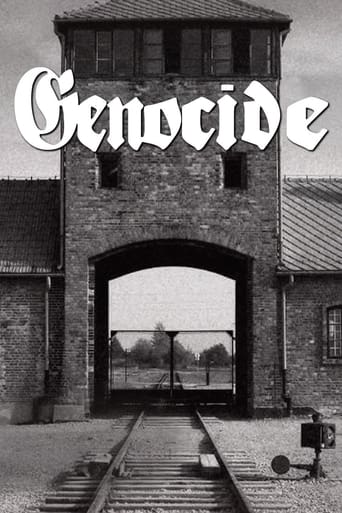

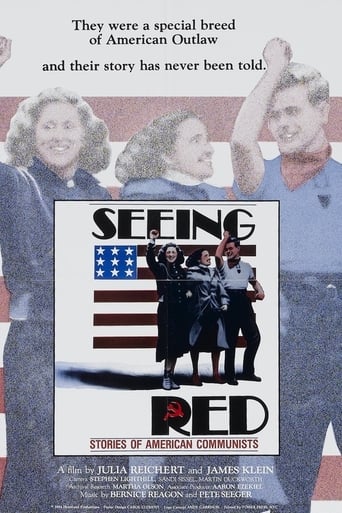



Vienna
Orson Welles talks fantasy and magic in this short Vienna travelogue.